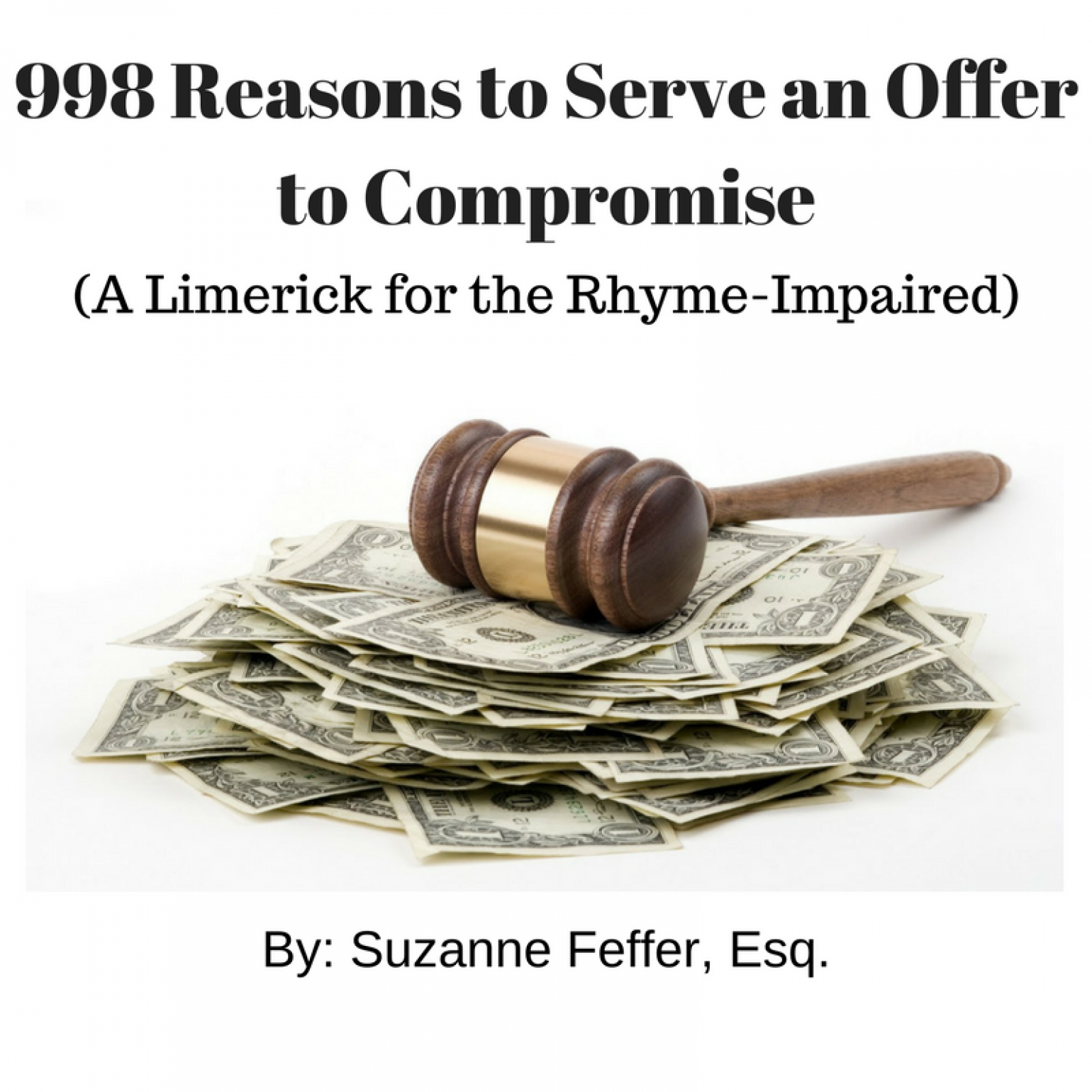998 Reasons to Serve an Offer to Compromise for the “Rhyme Impaired”
So you find yourself stuck in a claim
And no longer care who you can blame
You just want out
But still have some doubt
If you can settle and limit the pain
Sometimes it’s tough to call up and chat
With the folks at the core of your spat
How can you ever start
And get to the heart
Of the dollars needed to call it a wrap
As the date for the trial grows near
A written offer to settle will make clear
Your settlement stance
Shorten the dance
And force the lawyer to pass on your “cheer”
A Stat. Offer to Comp. can help move
Cases too expensive or hard to prove
The risk of ignoring the offer –
Increased post-judgement dollars
Those serving the offer will surely approve
The Stat. Offer will help you gain traction
In resolving cases to your satisfaction
Avoiding expert fees incurred
After the offer is served
May be just what’s needed to settle the action
Just as the limerick may have gotten your attention, a Statutory Offer to Compromise (California Code of Civil Procedure, section 998) may be just what is needed to get the other side’s attention and open settlement discussions. First, a lawyer is ethically obligated to communicate an offer in writing (California Rules of Professional Conduct, rule 3-510). Second, there are risks associated with ignoring the offer. For example, if a party does not receive a more favorable judgement or award at trial than the offer extended (i.e., if a plaintiff secures a verdict less than a defendant’s Statutory Offer to Compromise or if a verdict is returned against a defendant in excess of a plaintiff’s Statutory Offer to Compromise), the party serving the offer may be entitled to recover post-offer expert fees. (A recent change in the law limited recovery by both parties to post-judgment fees.)
So when should you serve a Statutory Offer to Compromise? The answer is once you have had a chance to evaluate the case and the exposure it presents. Ideally, that will be before expert fees are incurred. Whether a Statutory Offer is served to send a message (i.e., the value a party has assigned to a case), lay the groundwork for the possible future recovery of expert fees, or simply to broach the topic of settlement, it is an avenue worth exploring before trial.
This article was originally featured in the Fall 2016 edition of our quarterly newsletter At Issue. We have re-posted it in honor of World Poetry Day.




